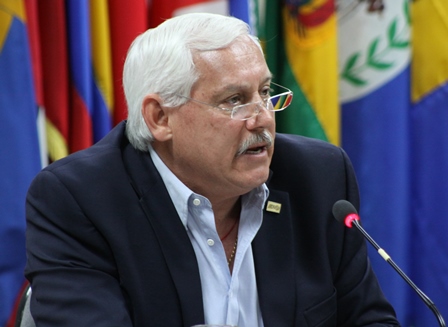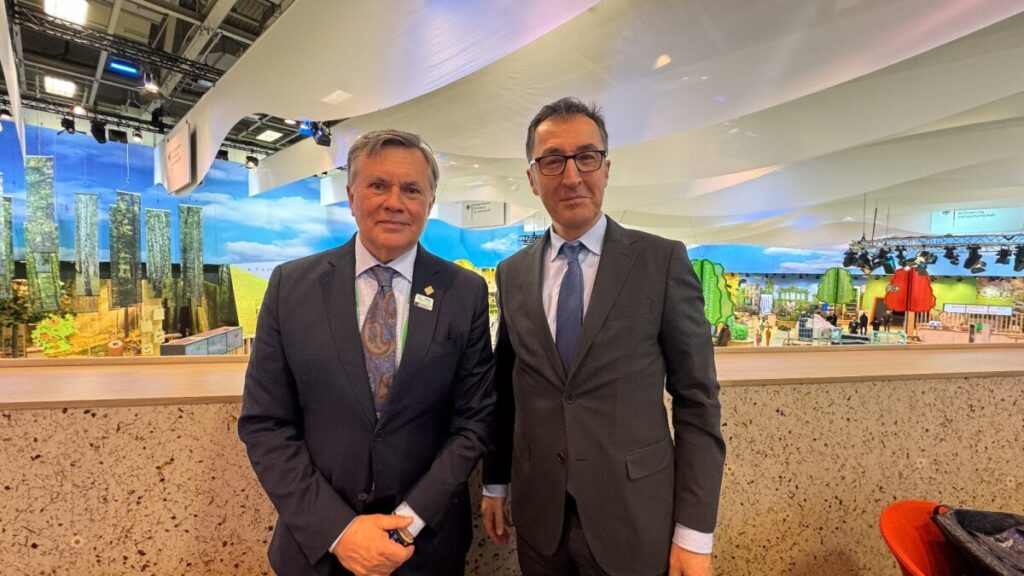At the Summit of Central America, the Director General of IICA highlighted the need to implement actions for overcoming marginality and poverty in the region’s rural areas.

The promotion of economic development in rural areas of Central America can assist in reducing the burden that forces people to leave their country in search of a better way of life and opportunities for themselves and their children.
The migration crisis that Central America, Mexico, and the United States experienced in 2014 proved it was necessary to invest in agriculture in order to reduce rural poverty. Although migration is a serious and complex phenomenon in which multiple factors come into play, the majority of people who left their countries that year were from rural areas with few opportunities for development.
The Director General of IICA, Víctor M. Villalobos, addressed this topic at the Summit of Central America, organized by Texas A&M in Dallas Texas on June 28-29th, 2016.. This meeting provided an opportunity for regional leaders and key members of the development community to identify innovative strategies for building a viable future for Honduras, El Salvador and Guatemala.
According to Villalobos, improving the quality of life of rural families, through immediate and medium-term actions, is an urgent matter. He stated that efforts in this regard should include direct humanitarian assistance, as well as the creation of opportunities to enable families to improve their quality of life.
“IICA can coordinate the participation of local agents in order to disseminate simple technologies and agricultural practices that have succeeded in increasing productivity and income, as well as improving organization in the neediest communities,” he stated.
Villalobos stated that another important aspect was strengthening organizations of producers in order to boost their negotiation and entrepreneurial capacities.
“There is no doubt that agriculture can respond to major challenges, but it cannot succeed unless we drastically change the way in which we practice agriculture,” he stated.
According to Villalobos, the agricultural sector must come up with solutions to the following major issues:
- How to sustainably feed humankind in the future, without damaging natural resources and in light of imminent and even greater climate change and water scarcity.
- How to make agriculture good business for producers.
- How to make agriculture more productive, sustainable and inclusive.
The American hemisphere has the greatest potential to become the breadbasket of the world. Some factors that benefit the region are its abundance of natural resources and high-quality land and production systems; but even more valuable are the region’s rich traditions in science and innovation and its talented professionals who can make this transformation a reality.
“We must begin by targeting the root of the problem; that is, by improving the development of small-scale farmers and their families, with support from innovative training programs that would enable women and youth to improve their abilities and market their products,” he stated.
Among the attendees were U.S. congresswoman Kay Ranger from the state of Texas; agricultural representatives from El Salvador, Honduras, and Guatemala; members of the private sector and academia; research institutes; and nongovernmental organizations offering technical cooperation.
The summit was organized by Texas A&M University and the Borlaug Institute.
More information: lloyd.day@iica.int
*This post appears in the IICA Delegation in the USA Newsletter – May- June 2016










